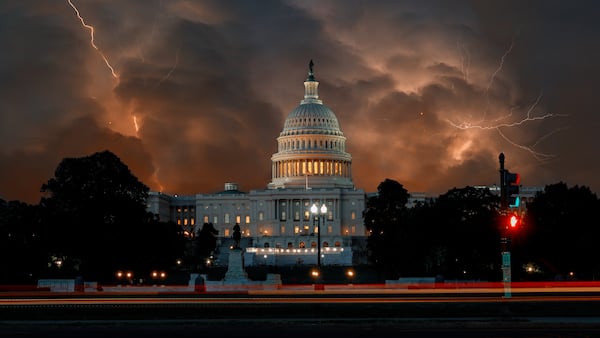- * Twenty-four central banks could have a CBDC by 2030, a new survey from the BIS shows.
- * TradFi firms hope their solutions will improve payments and settlement between global banks.
- * But concerns about mass-surveillance could slow the plans.
Ready or not, CBDCs are coming.
The vast majority of central banks — 93% — are working on some form of central bank digital currency.
Twenty-four could have either a retail or wholesale CBDC by 2030, according to a report published this week by the Bank of International Settlements.
“The BIS survey shows that central banks are more bullish than ever on CBDCs,” Gilbert Verdain, founder and CEO of Quant, a technology partner on the Bank of England’s CBDC project, told DL News.
The BIS comprises 63 of the world’s central banks, including the Federal Reserve, the European Central Bank, and the Bank of Japan.
As such, it helps shape monetary policy for the global economy.
The big news in the report was the dynamic role played by emerging markets driving the expansion of retail CBDCs.
The push for financial inclusion and improving remittance payments is pushing acceptance of this new form of money, the report said.
All the five economies with a live retail CBDC — Nigeria, Jamaica, Eastern Caribbean, and Bahamas — are emerging economies.
The BIS survey found that work on retail CBDCs is more advanced than on the wholesale side.
NOW READ: Swedish CBDC head: The state doesn’t care how people pay for things
Nevertheless, more than half of respondents were working on a pilot project or a concrete experiment for a wholesale CBDC.
But experts worry that privacy concerns about retail CBDCs could slow work.
Hot-button issue
CBDCs have become a hot-button issue in crypto maximalist circles, where they are seen as creeping state surveillance and an existential threat to the industry.
These views have found favour in the US, where a string of Republican draft bills have cited worries that a digital dollar would enable the government to spy on private transactions and choke crypto innovation.
READ MORE: Attacks on CBDCs highlight crypto’s new battleground
Florida governor and 2024 presidential hopeful Ron DeSantis wants to ban CBDCs in the Sunshine State, and Texas Senator Ted Cruz wants to do the same at the federal level.

Some in the financial sector suspect CBDCs are a potential threat to the existing banking system — a distortion that continues despite evidence to the contrary, Verdain said.
The BIS survey found that 87% of central banks engaged in CBDC work consider using private sector intermediaries.
These companies would carry out know your customer, and anti-money laundering procedures and provide wallets and user interfaces.
Also, Verdain added, blockchain technology can protect individual privacy with zero-knowledge proofs and encryption.
“Many countries, such as the UK, are taking very considered approaches to adoption,” he said.
“Pilots involve extensive public and regulatory consultation, with business and institutional involvement, to ensure that CBDCs meet our democratic needs.”
Tainting wholesale
Meanwhile, traditional financial firms hope wholesale CBDCs can bring efficiency and reduced risk to trading and settlements.
The process of completing financial transactions is one that is slow, highly structured, and involves intermediaries utilising ageing technology.
NOW READ: BoE exec hits back at CBDC critics over privacy concerns: ‘In the UK we’re really clear about this’
Plus, there’s a 48-hour delay between when the trade is agreed and when it is settled, which introduces risk into the process.
That delay has practical reasons, but does introduce risk as a lot can happen in two days.
The buyer could default before paying up, for instance.
Or one leg of the trade could settle correctly while the other doesn’t, a problem that arises particularly when two different currencies are involved.
Weekends and holidays can extend the settlement delay, which extends the risk.
Many central banks are trying to extend the hours in which they do settlements for that reason.
Wholesale CBDCs could introduce “atomic settlement” to TradFi — meaning both sides of a trade could be settled instantly and simultaneously.
That would mitigate a lot of settlement risk caused by that 48-hour window, and allow central banks to settle trades almost round the clock, said Alex Knight, head of Europe, Middle East and Africa for fintech company Baton Systems.
Even so, adoption of wholesale CBDCs isn’t a given. The privacy concerns on retail CBDCs will be a factor.
“There will be some headwinds to the extent that people are concerned about retail — that will impact wholesale too,” Knight told DL News.
Have a tip about crypto regulation or CBDCs? Contact me at joanna@dlnews.com.



